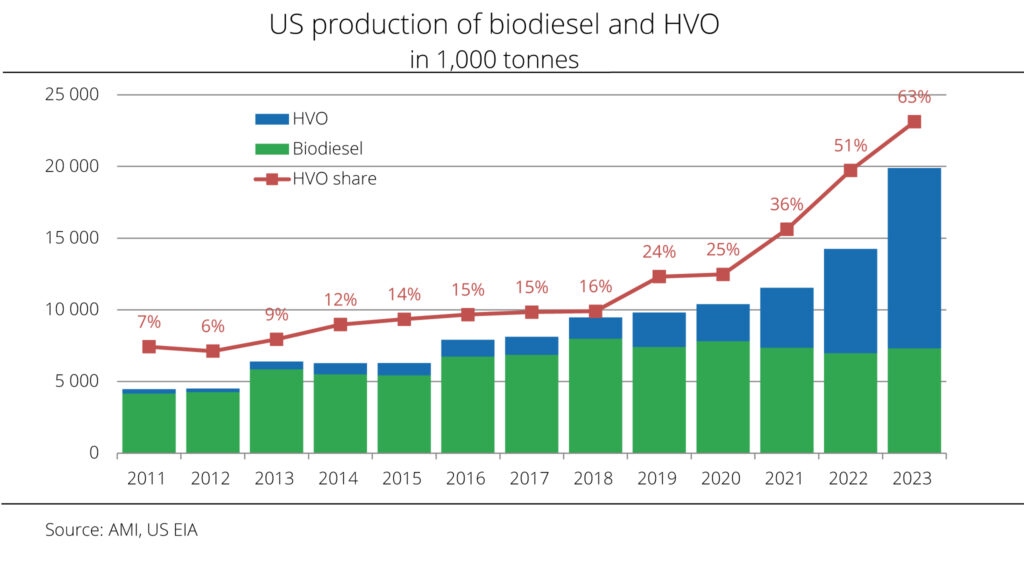
According to recent information published by the US Energy Information Administration (EIA), around 19.9 million tonnes of biodiesel including HVO were produced in the US in the calendar year 2023. Biodiesel production, at 7.3 million tonnes, accounted for only 37 per cent of total production. By contrast, production of HVO gained significantly in importance, reaching the lion’s share of 63 per cent at 12.6 million tonnes.
In other words, market shares have shifted considerably over recent years. According to investigations conducted by Agrarmarkt Informations-Gesellschaft (mbH), HVO production in the US amounted to just 301,000 tonnes in the calendar year 2011, whereas production of biodiesel totalled 4.2 million tonnes. Since 2012, the share of renewable fuels has grown steadily. Production of HVO has increased rapidly since 2020. By contrast, the trend for biodiesel in the US has been stable to slightly downward since 2018.
The Union zur Förderung von Oel- und Proteinpflanzen (UFOP) expects a similar development to take place in Germany and the European Union. There are virtually no more investments in plants for biodiesel production. Instead, mineral oil groups are investing in HVO facilities in Italy, France and the Netherlands, for example, because a so-called drop-in capable fuel allows higher blending percentages in diesel fuel without violating standards. What is more, HVO can be used as bio-kerosene after it has undergone appropriate chemical modification. What is more, HVO can be used as bio-kerosene after it has undergone appropriate chemical modification.
Investments in HVO plants are not currently planned in Germany, whereas investments in the co-processing of waste oils and fats in oil refineries are. Since a legal amendment was introduced in 2024, biofuels produced in this way can be counted towards the greenhouse gas reduction obligation. However, the regulation only provides for the use of waste oils and fats. The UFOP has emphasised that consequently, the feedstock potential is extremely limited.
Source
UFOP, press release, 2024-06-13.
Supplier
Union zur Förderung von Oel- und Proteinpflanzen e.V. (UFOP)
US Energy Information Administration (EIA)
Share
Renewable Carbon News – Daily Newsletter
Subscribe to our daily email newsletter – the world's leading newsletter on renewable materials and chemicals










